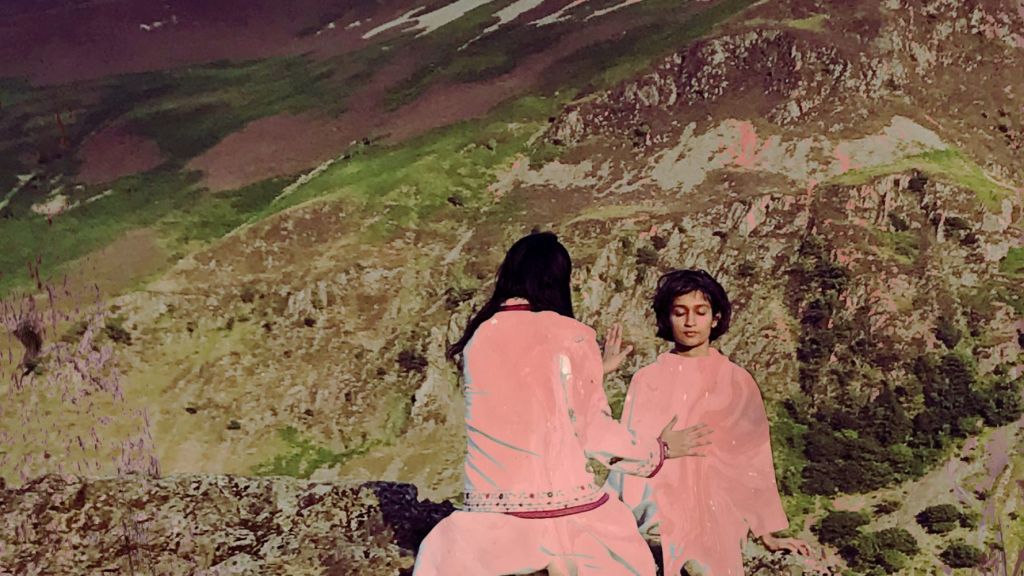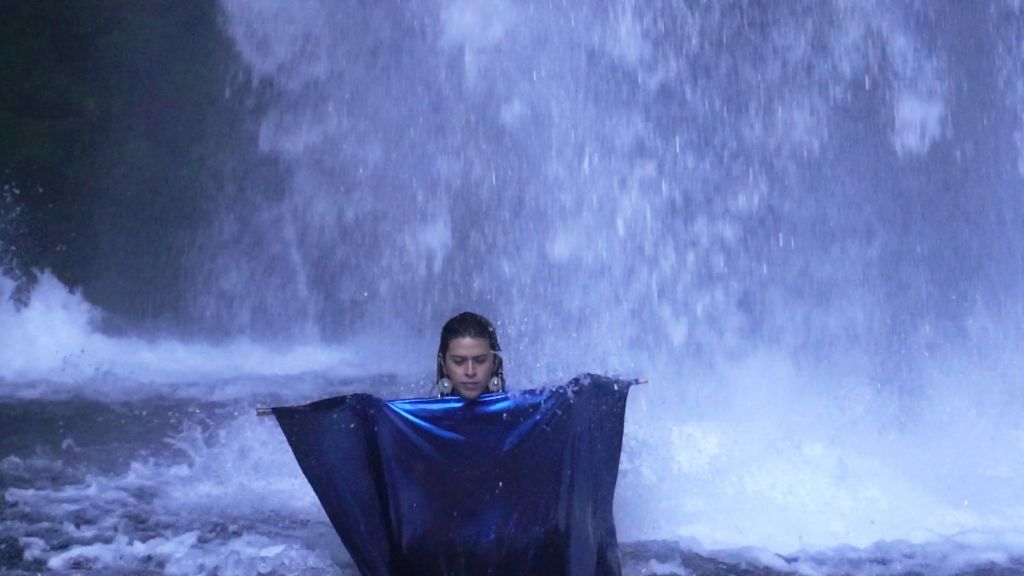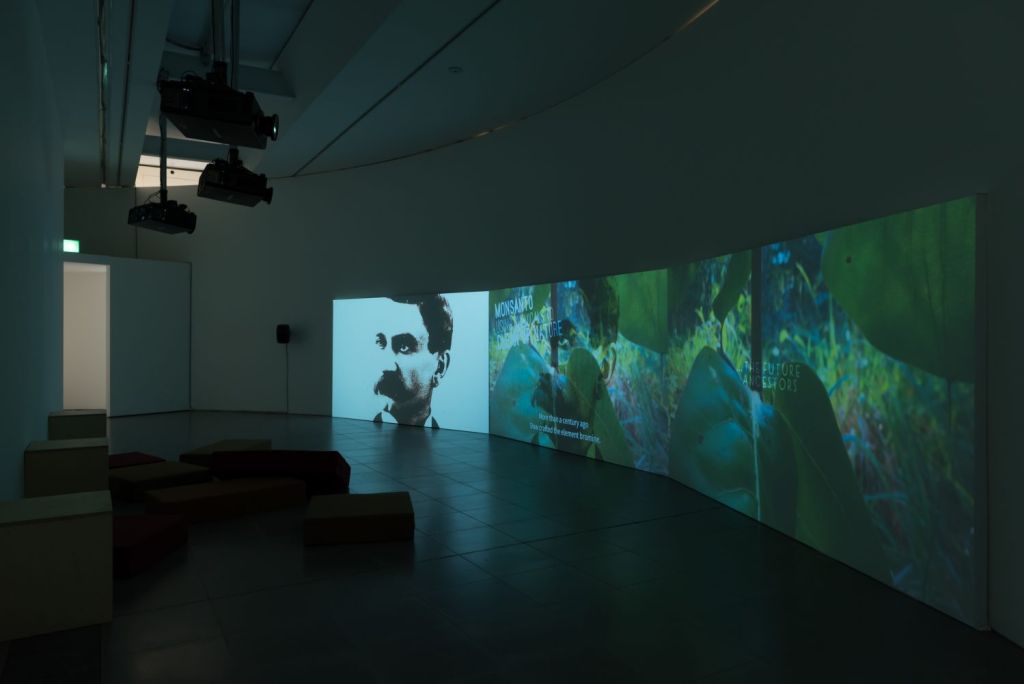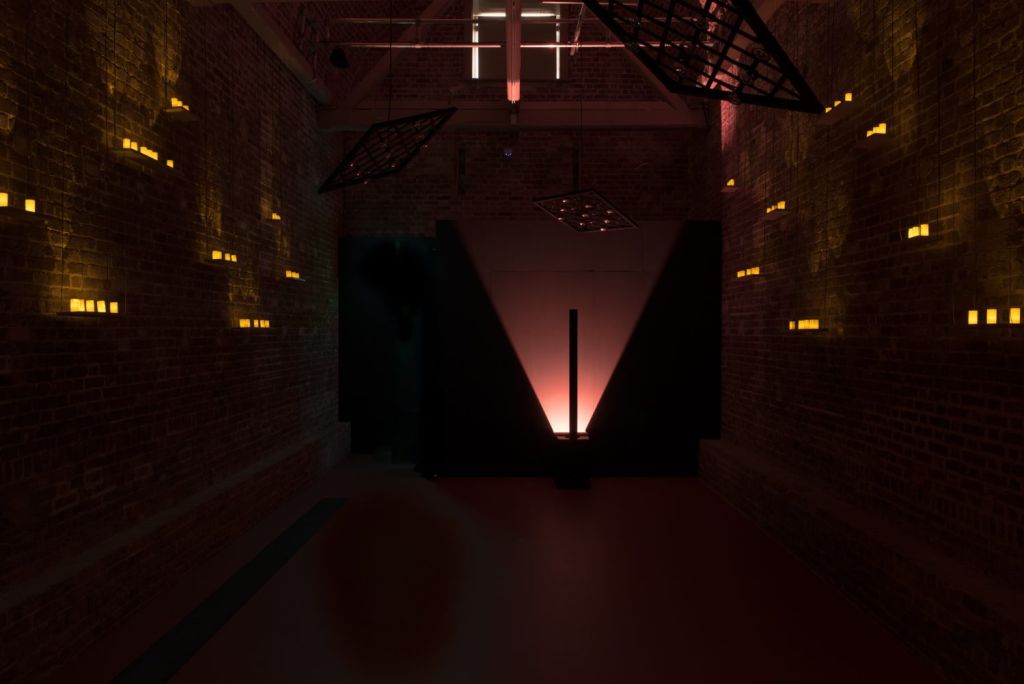Text by Nathalia Dutra Maciel

Serpentine’s long-term interdisciplinary artistic programme Back to Earth is a multi-year project that invites over 60 leading figures in art, architecture, poetry, film, design and science to respond to the current climate crisis. The programme emerged from Serpentine’s long-standing engagement with topics of extinction and disappearance of species, knowledge and customs that began in 2014 with the Extinction Marathon. Back to Earth hopes to evoke responses to the climate emergency, highlighting communities from across the globe. Interdisciplinary and collaborative at its core, the programme holds onsite, offline and online programmes.
Back to Earth, is part of the General Ecology’s programme. For the period of 2020-2022, much of the General Ecology’s processes and infrastructure are dedicated to supporting Back to Earth, which is also the Serpentine’s 50th-anniversary project, with a complex web of knowledge interconnected across the globe through research, collaboration, interventions and activities.
Rebecca Lewin, Serpentine Exhibitions and Design Curator and who gave us exclusive insights on the programme, states: Collaboration has been key to the entirety of Back to Earth, from the team working across departments within Serpentine to the broader network of supporters and advisors with whom we worked to develop the project…We sought to include these collaborations whenever they arose, as the addition of multiple voices and conversations reflects the need to bring together various perspectives when thinking about the climate emergency.
The programme intends to share resources, amplify ongoing projects and spark the development of new ones. Furthermore, it aims to incite learning, exchanging, and growing through interaction. As stated by Rebecca Lewin, Back to Earth wants to think more about the Earth, and the materiality of Earth, than about the concept of the global. It addresses the specificity of multiple local experiences, hoping to bring attention to the concerns of individuals, communities and non-humans in Europe, the Americas, Australia and South Africa.– The programme focuses on tangible local solutions and interactions with the earthly soil.
A multi-encompassing exhibition with deeply intimate reflections on climate change is currently ongoing until 18 September 2022. With the same name as the whole programme, the Back to Earth exhibition reminds us of the fragility of the earth immediately beneath our feet and the planet we depend on by inviting artistic responses to the climate emergency, bringing together different kinds of research, materials and approaches from around the planet to offer insights into artists’ concerns, ideas and hopes for the future. It features artists including Agnes Denes, Brian Eno, Formafantasma, Sissel Tolaas, Superflux and Studio Ghazaal Vojdani, Tabita Rezaire and more.
However, the project exists in various formats, including Cooking Sections‘ in Collaboration with Serpentine’s cafe that encourages people to think not just about the kinds of foods we need to eat, both to accommodate changing climates and to regenerate the land and sea as we cultivate it.”As well as other additional formats such as projects in Collaboration with The Magazine and Alexandra Daisy Ginsberg’s Pollinator Pathmaker in partnership with Kensington Gardens.



Right: Making gardens out of silence in the uncanny valley, Brian Eno (2022). Sound installation. Photo credit: readsreads.info
Alexandra Daisy Ginsberg (who is also in the Back to Earth exhibition) has planted a garden designed by an algorithm for the support of pollinators and has made this software available for free on the platform pollinator.art, enabling anyone to use it to create and plant their own gardens. Serpentine has also partnered with organisations to commission new artworks, such as PCAI and MUBI on the production of a new film by Manthia Diawara, and with E-Werk Luckenwalde, Madre Napoli and the Palais de Tokyo, Paris on another moving image work, by Karrabing Film Collective.
Furthermore, the programme, alongside partner institutions, has been able to introduce our audiences to the storytelling of the Aboriginal communities who form Karrabing and, at the same time, provide support to their efforts in Northwestern Australia to conserve the land and its ecosystems.
Back to Earth also features a series of live programmes that will happen for the next two years, including the two-day festival Queer Earth and Liquid Matters. The festival ran from the 16th to the 17th of July. In collaboration with Stone Nest & QUEERCIRCLE, the two-day festival was curated by Jack Halberstam, Macarena Gómez-Barris and Kostas Stasinopoulos. The festival explored transformation, queerness, the natural, the unnatural and the wild as decolonial, indigenous and submerged perspectives on the climate crisis. The programme will feature participants’ talks, performances, films and more, including a performance and reading by poet and writer Bhanu Kapil in collaboration with the multidisciplinary dance theatre company Wringing Metamorphosis.
Macarena Gómez-Barris, Scholar and Writer, regarding Queer Earth Liquid Matters: This promises to be an exciting two-day event that will generate more ways to challenge how we understand the normative framework of Anthropocene politics. Through forms of experimentation, the artists, scholars, visual thinkers, performers and activists we’ve invited will bring forward powerful images, cultural memories, and imaginations of the queer and decolonise otherwise.
Further reflecting on Back to Earth as a whole, Rebecca Lewin shares: All of the artists we have engaged with share the belief that communication – of knowledge, stories, rituals and inspiration – is key to gaining insight into the interconnectedness of economies, consumption and ecosystems. It is this insight that will garner the change that is needed. The artistic project considers ecology embedded in everyday practices and pushes for everyday ecological mindfulness. This programme raises questions about new ecosystems and causes us to imagine how we can use them to foster agency within organisations. It calls for immediate actions and exists as a catalyst for change.






